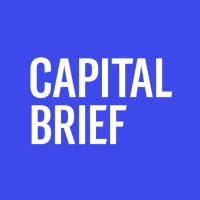Announcements
No posts found.
Press

“We operate the technology infrastructure for the global environmental commodity markets.
“These markets are used by companies, state and national governments, and other organizations to support their decarbonization, sustainability, and energy transition programs.”
“Specifically, Xpansiv operates the end-to-end infrastructure supporting global markets in carbon and renewable energy credits (RECs), as well as alternative fuels, recycled plastics and other, emerging asset classes. Our infrastructure enables users to manage environmental commodities from issuance to retirement, so across their full lifecycle. The company operates leading registries, transparent spot exchange and settlement mechanisms, a global market intermediary platform, and a market data business, and these are integrated into one digital ecosystem.”

As clean energy demand accelerates, companies are rethinking how they meet ambitious climate targets—and Renewable Energy Credits (RECs) are at the center of that shift.
In Environment+Energy Leader, John Melby outlines why RECs are gaining new relevance: not just for annual reporting, but for aligning clean energy use with real-time operations, enabling more transparent claims, and supporting the infrastructure needed to scale clean energy access. outlines why RECs are gaining new relevance: not just for annual reporting, but for aligning clean energy use with real-time operations, enabling more transparent claims, and supporting the infrastructure needed to scale clean energy access.

The main global industry body for airlines will hold “regular” sales events for the sale of carbon credits eligible for the UN’s Corsia decarbonisation initiative, it said Wednesday, confirming that its members have paid $21.70 per credit from Guyana’s jurisdictional REDD+ scheme during the first round of transactions.
“IATA, via the Aviation Carbon Exchange (ACE) intends to host quarterly Corsia EEUs [Eligible Emissions units] procurement events for airlines in 2025, with the next event being held alongside Guyana and Mercuria in Q1,” IATA said in a January 22 statement.
ACE is an EEU sales platform offered in partnership with environmental markets technology provider Xpansiv.

Eco-Energy has expanded its renewable fuel emissions book and claim programme to include biodiesel and renewable diesel, allowing producers of lower carbon intensity fuels to sell on excess emissions saving to corporate end-users.
The new Transport Emission Reduction Certificates will be added to existing ones for fuel ethanol and will be issued, transacted and retired through a registry run by Xpansiv.

Saudi Arabia is looking to launch a national compliance carbon market in the next two three years, the country’s energy minister announced.
Speaking at the kingdom’s Future Investment Initiative in Riyadh – known as the “Davos in the Desert” due to the array of global financiers that attend – Prince Abdulaziz bin Salman Al Saud also confirmed the Saudi voluntary carbon market (VCM) trading platform is set to launch at COP29 in Azerbaijan next month.
RVCMC earlier this year selected Xpansiv, the owner of the CBL marketplace, to provide the technology infrastructure for its carbon credit exchange.

Tighter emissions caps are driving more Australian companies to trade, while international players controlling facilities like power stations and mines are also entering the market. As the market matures, brokers are moving from over-the-counter (OTC) trades to more sophisticated derivative products, such as futures, forwards and options.
Derivatives exchange CME is catering to Australian companies as they shift towards exchange trading, partnering with exchange platform Xpansiv to launch an ACCU futures contract this month. The Australian Securities Exchange (ASX) launched its own carbon futures contract in July.
Xpansiv CEO Ben Stuart believes derivatives will give companies greater control over carbon risk management, predicting more sophisticated hedging strategies as participation grows.
“The market has evolved to a point now where a derivatives market makes sense, and the need for forward hedging is really essential to managing risk,” he said.
“Ultimately, that’s what the futures contracts are for, so you start to manage price exposure using more long, dated contracts out the curve.”






